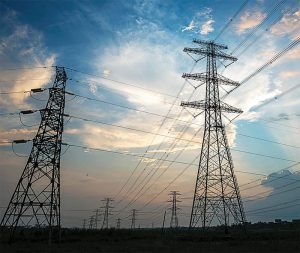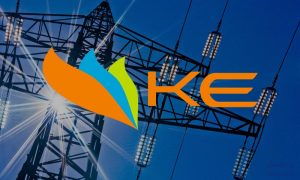World’s 7th largest Thar coal reserves are set to meet growing energy demands of country as coal mining and power plant projects have entered construction phase and the first phase would be completed by June 2019.
According to Sindh Engro Coal Mining Company (SECMC) which works in collaboration with the Sindh government and is the main sponsor of the project, Thar coal reserves containing 175 billion ton coal are spread over an area of 9000 square kilometers in Tharparkar, Sindh which has been divided into 13 blocks while SECMC has been allocated the block-2 area which contains 1 per cent of total Thar reserves.
The project of national importance would not only help in bridging the gap of demand and supply of the energy but it would also give a boost to development activities in the most under developed district of the country.
The 1.57 billion tons, exploitable reserves of block-2 can be used to produce 5000MW electricity for 50 years.
The Thar coal reserves beat the oil reserves held by Saudi Arabia and Iran. When converted into gas, the coal deposits are equal to 2,000 trillion cubic feet, which is 68 times more than Pakistan’s total reserves.
“Keeping in view the Pakistan’s current population and urbanization growth rate, the country would need six times more energy (approximately 131,535 MW) than what it is installed now, by 2030”, said Shamsuddin Ahmed Sheikh.
Source wise electricity generation 2014 data shows that the country was producing 29 per cent hydel and 67 per cent thermal energy while there was zero production of electricity through wind or coal.
Meanwhile CEO SECMC Shamsuddin Ahmed Sheikh told a group of journalists from Islamabad at the site of the project in Islamkot, Tharparkar, that first phase of Thar Coal Fired Power Projects with power production capacity of 660 MW would start its commercial operation by June 3, 2019 instead of October 2019 (the earlier set target for completion of the project).
He said the financial close of the project was achieved on April 4, 2016 and since then 10.2 per cent of the total work had been completed.
He said work on power plant and coal mining was going on simultaneously.”This is the first coal-fired power project in Thar and it is one of the leading energy project of China Pakistan Economic Corridor (CPEC)”, the CEO SECMC said, adding that this was also the only energy project with such a majority sponsorship of private sector of country.
Shams informed that under the second phase, two more power plants (330 MW each) would be launched in January 2017 which would be completed by December 2019 as the SECMC had committed to off-take coal for phase II (7.6 mtpa) to Thal Limited and Hubco for setting up plants at block II.
SECMC also planned to add additional capacity of 11.4 mtpa coal beyond phase II by December 2021, he added.
Moreover, he said that by December 2021 five more coal fired power plants would be set up in the block II of Thar and the total production capacity of coal based electricity of Thar would be expanded to around 3000 MW.
He informed that the coal mining project cost was US $845 million which would be on the basis of 75:25 Debt to Equity ratio and would consist of 31.5 per cent foreign and 68.5 per cent local debt.
“The main sponsors of the project are Sindh government with 54.7 per cent share, Engro and Thal Limited with 12 per cent each and Habib Bank Limited (HBL) with 10 per cent share”, he remarked.
Shamsuddin said the total cost of two 330 MW mine mouth power plants would be $1.1 billion with 75:25 debt to equity ratio and it would consist of 75 per cent foreign and 25 per cent local debt.
The main sponsors of the project, he added that are Engro with 50.1 per cent share while its other shareholders are Liberty, HBL and China Machinery Engineering Company (CMEC) and others.
He said that the Sindh Government had been a key enabler for the Thar project which committed $110 million equity investment for phase-I and provided a back up for sovereign guarantee to the federal government of $700 million.








